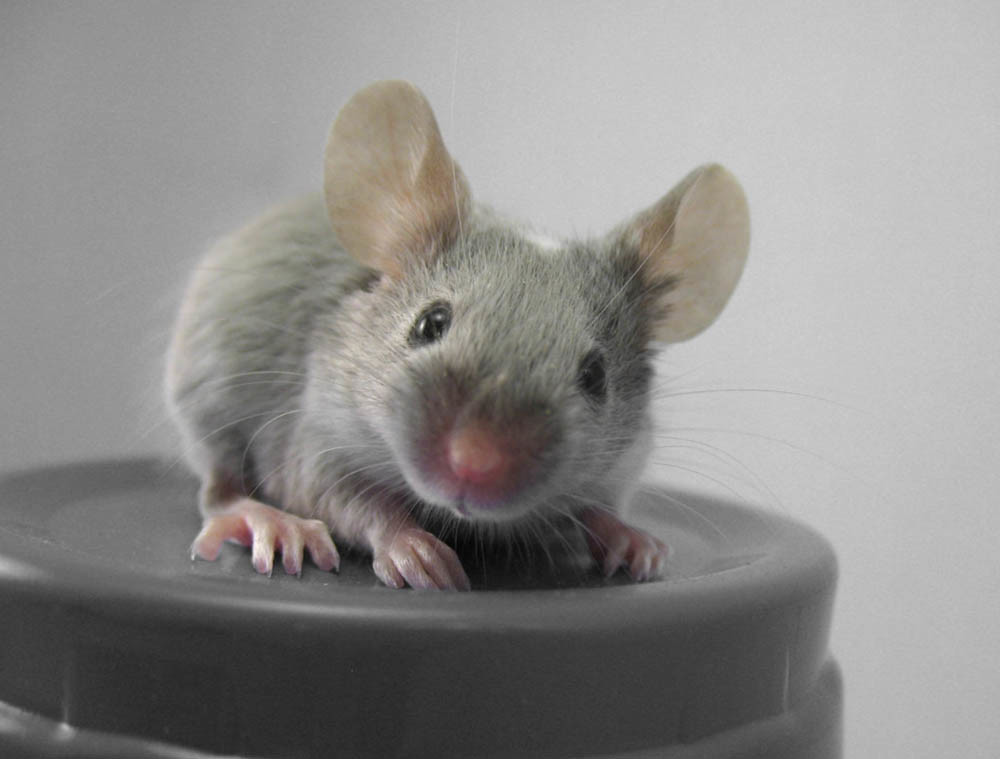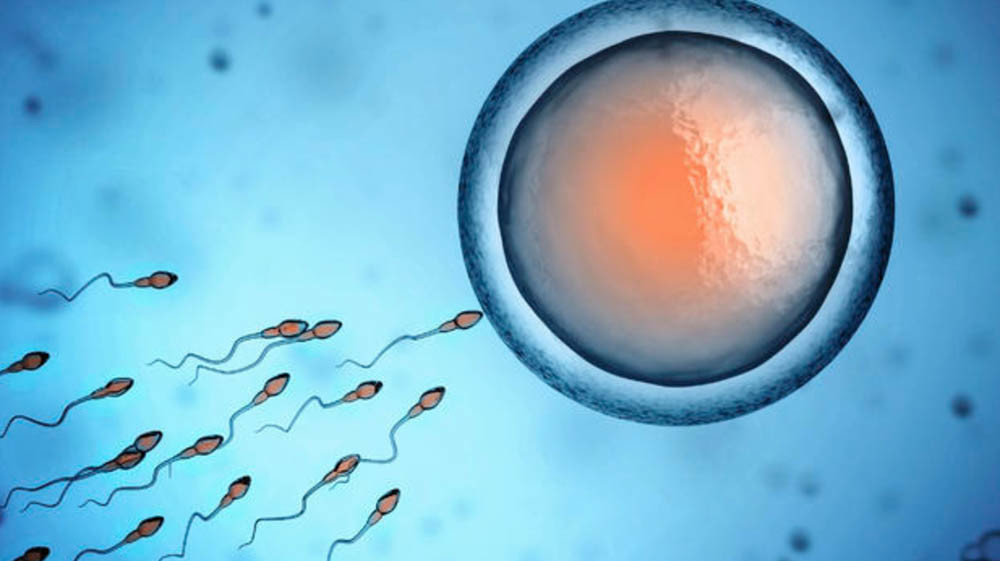This post is also available in: Español
There are some significant studies on melatonin and how it can improve egg quality and preserve ovarian health in later age. On the back of these studies, melatonin is produced in labs and sold everywhere. Millions of people take it to help with their sleep but how useful is it for egg quality?
Melatonin has been shown to help women’s eggs mature when undergoing IVF, but it does not improve implantation, pregnancy or miscarriage rates at all.

If you are a mouse, melatonin will help you have more babies even when you are 15 months old.
The amount of time these mice took melatonin for was 6 – 12 months.
In human years that is 34 – 58 years. Supplementation for melatonin to treat known conditions is typically 4 – 9 weeks.

Science tells us that melatonin regulates circadian rhythms. Circadian rhythms are the internal body clock that determines when people wake, and when they sleep. Disruptions in a person’s circadian rhythm are what one feels when they have jet lag. Seeing the sun and night at the wrong time throws out our body clock.
Melatonin is a hormone produced by the pineal gland.
Melatonin levels start to rise in the mid-to-late evening after the sun has set. They stay elevated for most of the night while it is dark. They drop in the early morning as the sun rises causing us to wake.
Melatonin is also found in a woman’s eggs.
Your eggs produce it. Melatonin levels are in higher quantities in a woman’s eggs than anywhere else in the body.
Melatonin is a potent free radical scavenger.
What does a free radical scavenger do? Our body’s mitochondria produce oxidants as a part of everyday life. Imagine it is like the smoke coming from the exhaust pipe of a car. It is a by-product of action. The body also has its anti-oxidants designed to get rid of the waste oxidants. It is a natural balance of waste and recycling.
Externally we get oxidants from tobacco, alcohol, and pollution. It is when the oxidants in our body exceed the anti-oxidants to get rid of them that we start having problems: this is when our body suffers oxidative stress.
If you want to read more about oxidative stress; do so here.
Melatonin protects our body and our eggs from oxidative stress. Especially at the time of ovulation. In the same way, it protects a growing baby in the womb from oxidative stress too. Use while pregnant should be under a doctor’s supervision only. It can cause harm.
All in all, melatonin is an excellent antioxidant that helps people sleep and wake.
Melatonin protects our bodies from oxidative stress. It also encourages other antioxidants to do their job better, especially vitamin E.
If people sleep well and eat well do they have enough anti-oxidants to combat the oxidants. Yes, they should.

Does melatonin improve egg quality?
We know that melatonin resides in the follicular fluid of the egg. The egg also produces it. We know that preserves the egg against oxidative stress. Does it improve egg quality, or preserve the quality.
Yes, if you are a mouse
Melatonin: nurturer or protector?
One study done gave mice chemotherapy drugs. They wanted to see what happened to their egg development and if melatonin would help. Melatonin preserved egg quality with chemotherapy and egg quality was normal.
Another study showed higher levels of oxidative stress in women with poor egg quality. Using melatonin and vitamin E they discovered a reduction in oxidative stress. The study did not record any improvement in egg quality. It did not record any pregnancies either. The study concluded:
“The best available evidence suggests a varied diet with regular use of multivitamins. Limit caffeine and alcohol and maintain a healthy body weight may promote fertility.”
Melatonin improves age-induced fertility decline and attenuates ovarian mitochondrial oxidative stress in mice.
This is the headline from a study published in 2016. In this study, they gave 2-3-month-old mice melatonin for 6 – 12 months and tested how good their egg quality was. The same study was done on mice with CoQ10. Both studies showed that mice had better fertility at an advanced age than those that didn’t take it.
The difference between CoQ10 and Melatonin.
CoQ10 supplementation in mice preserved the ovarian follicles. It also facilitated ovulation to support normal follicle development. The researchers also said that 16 weeks of treatment in mice was the equivalent to 10 years in women. Yes, CoQ10 helped preserve egg quality. However, its application for women impractical and unlikely.
How effective is melatonin compared to CoQ10?
Remember that CoQ10 stimulates mitochondria that creates oxidants in the first place. Melatonin recycles the mitochondria’s oxidative trash.
The Melatonin study proved that it helped aged mice produce better litters of pups. They also noticed that rates of miscarriages we unnaturally high too. They concluded
Data indicates that the melatonin delays age-associated infertility. It could not wholly prevent eventual reproductive aging. It did help preserve ovarian chromosomes and telomeres from degrading.
The study did not attempt to explain the high pregnancy failure rate.
What about Melatonin + Folic Acid + Myo-inositol?
You may have come across this combination for improving egg health. A 2010 study compared these three products together against just Myo-inositol and Folic acid alone. The study looks very promising. 65 women undergoing IVF were divided up into two groups. 50% of each taking the different combinations. They did notice that women taking the combination of Myo-Inositol/Folic acid plus Melatonin had on average 1.6 more mature eggs to be harvested for IVF than the women without the Melatonin addition. These women also had the GnRH drugs as a part of the study.
So what is wrong with these findings? According to the study taking Melatonin plus Myo-inositol and Folic acid improves the body’s ability to mature eggs.
This is also what it says. No difference in the outcomes of implantation or pregnancy rates. The other problem with the study is that it did not use women who were diagnosed with diminished ovarian reserve, poor ovarian responders or low AMH levels. All the women had normal egg quality.
If you wanted to test a product for solving a problem, wouldn’t you test on people with the problem?
Another study completed in 2017 actually did test Melatonin on women undergoing IVF who did have diminshed ovarian reserve and low AMH levels. The study discovered that, yes women taking Melatonin did have more mature eggs at time of pick up. But like the previous study, it appeared to make no difference in implantation or pregnancy outcomes.
3 studies have now been preformed using Melatonin to improve egg quality with IVF and all have shown no improvement in implantation, pregnancy or miscarriage rates.
Conclusion.
Melatonin is a very effective anti-oxidant that remove oxidants from your body. It helps preserve many of the body’s functions by reducing oxidization. Melatonin is plentiful in a follicle and reduces oxidative stress on the growth of eggs. By reducing oxidative stress, melatonin prevents damage to the growth of eggs. Can melatonin put it off forever? The answer is no.
Melatonin is a protector. It is not a nurturer.
To have oxidative stress under control in your body, you need a proper diet, low pollutants, and sound sleep. We know that melatonin declines with age.
Will melatonin preserve egg quality in aging women?
Now, this is the real question. The study that proved melatonin preserves egg quality in mice started with mice at 2 – 3 months old. They were fed melatonin for 6 – 12 months.
A 2-month-old mouse is equal to a 20-year-old person.
12 months of a mouse taking melatonin are equal to 58 human years.
Much like CoQ10, the ability for melatonin to prolong fertility in mice is proven. The biggest problem is that mouse time and human time are incompatible with effect.
So what is the best thing to do?
Sleep well. Try not to drink too much alcohol, don’t smoke at all. Avoid polluted areas. Eat the following foods that have melatonin.
Sour cherries, walnuts, corn, rice, ginger, and peanuts have the highest levels of melatonin.

Can melatonin supplementation be harmful? Absolutely.
Taking melatonin at the wrong time can make a person drowsy and disrupt their sleep cycles.
Melatonin lowers Follicular Stimulating Hormone and can disrupt the ovulatory cycle.
Some suggest that it can be problematic during pregnancy and should only be used under supervision. It can also cause headaches, dizziness, paranoia, digestive problems, anxiety and depression.
So what is safe?
20mg is used if a cancer patient is undergoing chemotherapy.
10mg of melatonin before bed for nine weeks is a recommended dose.
Taking melatonin consistently to improve or preserve egg quality will not work and can harm health.
Melatonin Dosage for Adults
- Melatonin for Trouble Falling Asleep 0.3 to 5 mg of melatonin, not to exceed nine months may help people who have trouble falling asleep
- Melatonin for Disrupted Sleep-Wake Cycle 2 to 12 mg taken at bedtime for up to 4 weeks, may help get your natural rhythm back on track
- Melatonin for Extended Difficulty Sleeping most research studies has used 2 to 3 mg of controlled-release melatonin for up to 29 weeks. Doses of up to 12 mg daily have also been studied for shorter durations (up to 4 weeks)
- Melatonin for Blood Pressure Support 2 to 3 mg of controlled-release melatonin for up to 4 weeks
- Melatonin for Jet Lag 0.5 to 8 mg at bedtime is commonly taken starting the night of arrival at your destination, continuing for 2 to 5 days
- Melatonin to improve egg quality. Dosage has never tested. Extrapolations from studies suggest it unlikely to work because of the amount of time it takes to work and the harmful side-effects of prolonged use.
People taking melatonin to improve egg quality who are not under medical supervision should stop immediately.
Citations.
Russel J. Reiter, Hiroshi Tamura, Dun Xian Tan, Xiao-Ying Xu. Melatonin and the circadian system: contributions to successful female reproduction, Fertility and Sterility, Volume 102, Issue 2, 2014. Pages 321-328. ISSN 0015-0282,
https://doi.org/10.1016/j.fertnstert.2014.06.014.
http://www.sciencedirect.com/science/article/pii/S0015028214005470
I. Adriaens, P. Jacquet, R. Cortvrindt, K. Janssen, J. Smitz. Melatonin has dose-dependent effects on folliculogenesis, oocyte maturation capacity and steroidogenesis. Toxicology, Volume 228, Issues 2–3, 2006, Pages 333-343. ISSN 0300-483X,
https://doi.org/10.1016/j.tox.2006.09.018.
http://www.sciencedirect.com/science/article/pii/S0300483X06005907
Ruder EH, Hartman TJ, Goldman MB. Impact of oxidative stress on female fertility. Current opinion in obstetrics & gynecology. 2009;21(3):219-222.
https://www.ncbi.nlm.nih.gov/pmc/articles/PMC2749720/
C. Song, W. Peng, S. Yin, J. Zhao, B. Fu, J. Zhang, T. Mao, H. Wu, Y. Zhang. Melatonin improves age-induced fertility decline and attenuates ovarian mitochondrial oxidative stress in mice. Scientific Reports volume6, Article number: 35165 (2016)
http://dx.doi.org/10.1038/srep35165
https://www.nature.com/articles/srep35165
Ben‐Meir, A. , Burstein, E. , Borrego‐Alvarez, A. , Chong, J. , Wong, E. , Yavorska, T. , Naranian, T. , Chi, M. , Wang, Y. , Bentov, Y. , Alexis, J. , Meriano, J. , Sung, H. , Gasser, D. L., Moley, K. H., Hekimi, S. , Casper, R. F. and Jurisicova, A. (2015), Coenzyme Q10 restores oocyte mitochondrial function and fertility during reproductive aging. Aging Cell, 14: 887-895. doi:10.1111/acel.12368
Song, C. et al. Melatonin improves age-induced fertility decline and attenuates ovarian mitochondrial oxidative stress in mice. Sci. Rep. 6, 35165; doi: 10.1038/srep35165 (2016).
https://www.nature.com/articles/srep35165
Rizzo P, Raffone E, Benedetto V. Effect of the treatment with myo-inositol plus folic acid plus melatonin in comparison with a treatment with myo-inositol plus folic acid on oocyte quality and pregnancy outcome in IVF cycles. A prospective, clinical trial. Eur Rev Med Pharmacol Sci. 2010;14:555–61.
https://www.ncbi.nlm.nih.gov/pubmed/20712264
Jahromi BN, Sadeghi S, Alipour S, Parsanezhad ME, Alamdarloo SM. Effect of Melatonin on the Outcome of Assisted Reproductive Technique Cycles in Women with Diminished Ovarian Reserve: A Double-Blinded Randomized Clinical Trial. Iranian Journal of Medical Sciences. 2017;42(1):73-78. https://www.ncbi.nlm.nih.gov/pubmed/28293053
Eryilmaz OG, Devran A, Sarikaya E, Aksakal FN, Mollamahmutoglu L, Cicek N. Melatonin improves the oocyte and the embryo in IVF patients with sleep disturbances, but does not improve the sleeping problems. J Assist Reprod Genet. 2011;28:815–20. doi: 10.1007/s10815-011-9604-y. https://www.ncbi.nlm.nih.gov/pmc/articles/PMC3169684/
Melatonin. WebMD. https://www.webmd.com/vitamins-supplements/ingredientmono-940-melatonin.aspx?activeingredientid=940

